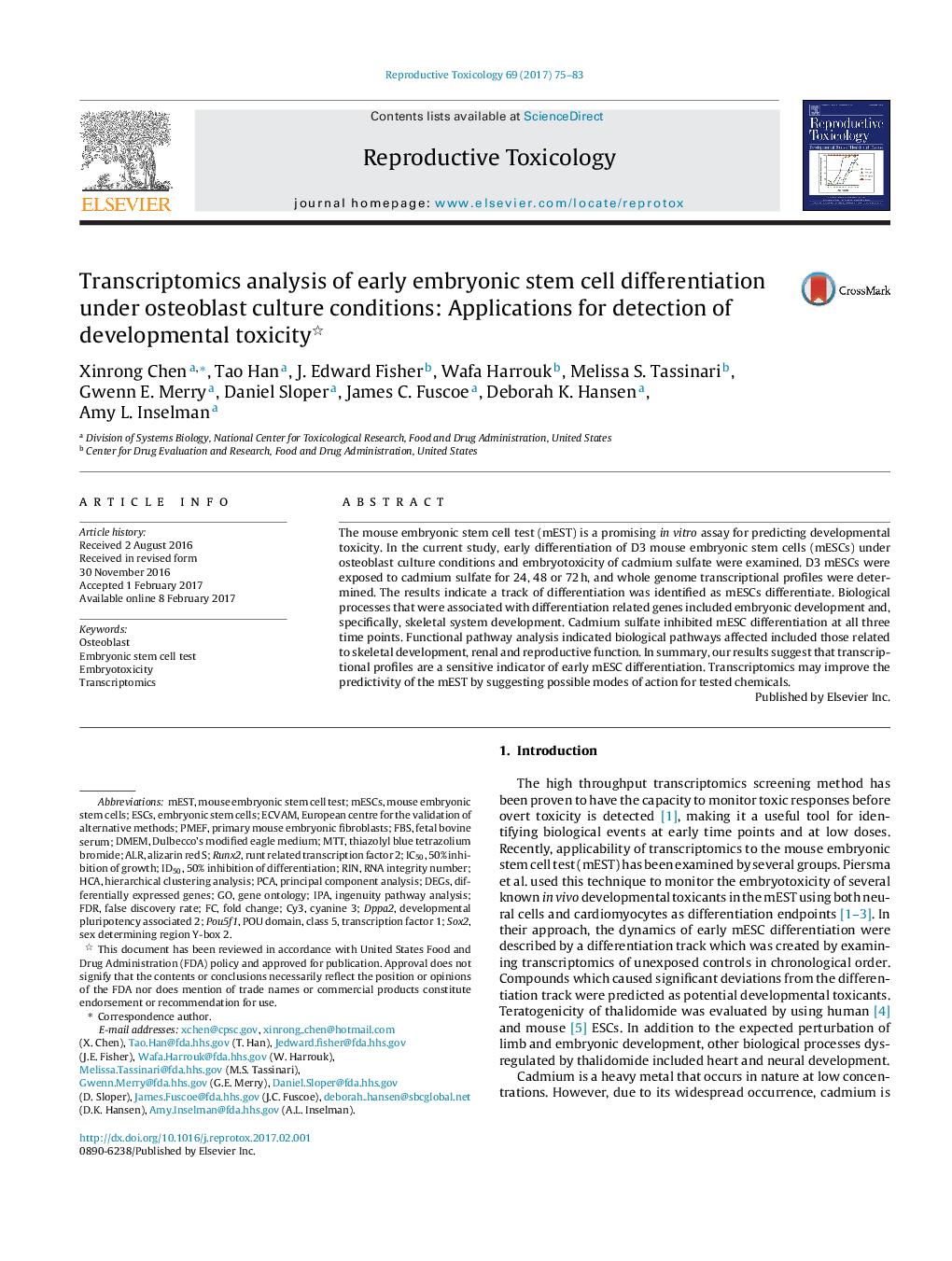| Article ID | Journal | Published Year | Pages | File Type |
|---|---|---|---|---|
| 5561583 | Reproductive Toxicology | 2017 | 9 Pages |
â¢A track of differentiation was identified as time progress.â¢While osteoblast genes were upregulated, stem cell genes were down-regulated.â¢Microarray results were confirmed by PCR analysis.â¢Skeletal development was significantly dysregulated by cadmium sulfate.â¢Transcriptomics can detect toxic effects at earlier time points.
The mouse embryonic stem cell test (mEST) is a promising in vitro assay for predicting developmental toxicity. In the current study, early differentiation of D3 mouse embryonic stem cells (mESCs) under osteoblast culture conditions and embryotoxicity of cadmium sulfate were examined. D3 mESCs were exposed to cadmium sulfate for 24, 48 or 72Â h, and whole genome transcriptional profiles were determined. The results indicate a track of differentiation was identified as mESCs differentiate. Biological processes that were associated with differentiation related genes included embryonic development and, specifically, skeletal system development. Cadmium sulfate inhibited mESC differentiation at all three time points. Functional pathway analysis indicated biological pathways affected included those related to skeletal development, renal and reproductive function. In summary, our results suggest that transcriptional profiles are a sensitive indicator of early mESC differentiation. Transcriptomics may improve the predictivity of the mEST by suggesting possible modes of action for tested chemicals.
